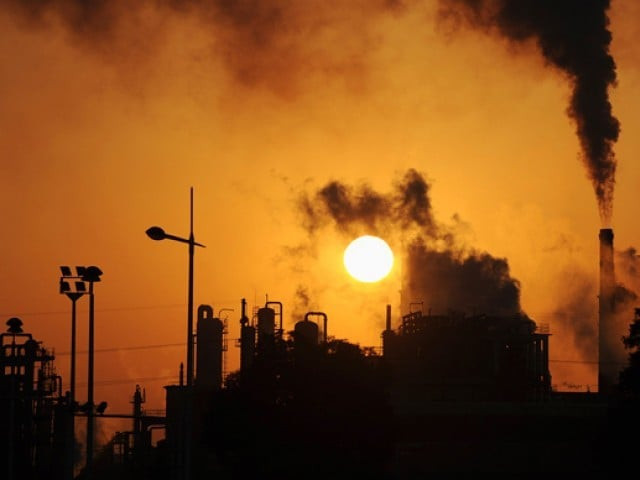Smog tightens chokehold on twin cities
AQI crosses hazardous limits amid dry spell; respiratory illnesses surge

Air pollution in the twin cities of Rawalpindi and Islamabad, as well as in the hill station Murree, has risen to dangerous levels, triggering a spike in respiratory and skin-related illnesses, including dry cough, flu, nasal congestion, eye inflammation, and skin irritation.
The absence of rainfall for the past three weeks has severely worsened air quality. Smoke-emitting factories, vehicles, brick kilns, stone-crushing machines, and constant dust from construction materials have blanketed the atmosphere, leading to a steady increase in pollution levels.
The Air Quality Index (AQI) in Rawalpindi has crossed 158, while Islamabad's AQI stands at 147. In Murree, the AQI has climbed to 98, and in other districts of Rawalpindi DivisionAttock, Jhelum and Chakwalpollution levels have surpassed 170.
Around-the-clock dust and emissions are continuously deteriorating the air quality. In response to the worsening situation, the Environmental Protection Department and the Ministry of Climate Change have imposed an immediate ban on stone-crushing operations in Taxila and the Margalla Hills.
Burning of scrap tyres to extract black oil has also been prohibited. The Regional Transport Authority (RTA) has been instructed to take swift action against smoke-emitting vehicles and motorbikes, while the Civil Defence Department has been directed to crack down on polluting factories, bakeries, and industrial units.
Brick kilns operating without environment-friendly zigzag technology are to be sealed immediately, and the transportation of construction materials without proper covering has been banned in Rawalpindi, Islamabad, and Murree.
Due to the polluted air, a large number of citizensincluding children, women, and the elderlyare suffering from respiratory and skin ailments, flooding the outpatient departments of the three major allied hospitals in the twin cities.
Private clinics in neighbourhoods are also reporting a surge in such cases, with women making up the majority of patients. Dr Inayat, Deputy Medical Superintendent at Benazir Bhutto General Hospital, and Professor Dr Ahsan Kazmi, a medical specialist, have advised citizens to avoid drinking cold or refrigerated water, instead using water at a moderate temperature.
They have also urged people to stop consuming ice cream and ice balls, to cover their eyes and wear masks, and to drink herbal tea (qahwa) twice daily, along with soups and warm teas.
Meanwhile, Deputy Commissioner Hassan Waqar Cheema has taken serious notice of the rising environmental pollution in Rawalpindi, issuing strict orders to all relevant departments to implement anti-smog advisories immediately.





















COMMENTS
Comments are moderated and generally will be posted if they are on-topic and not abusive.
For more information, please see our Comments FAQ